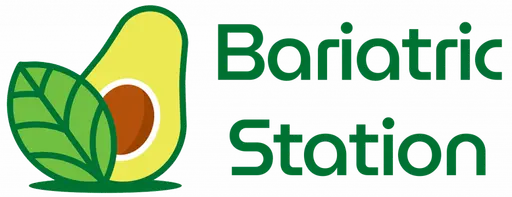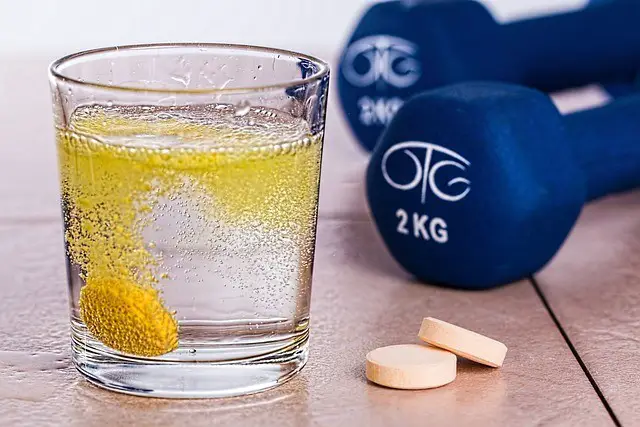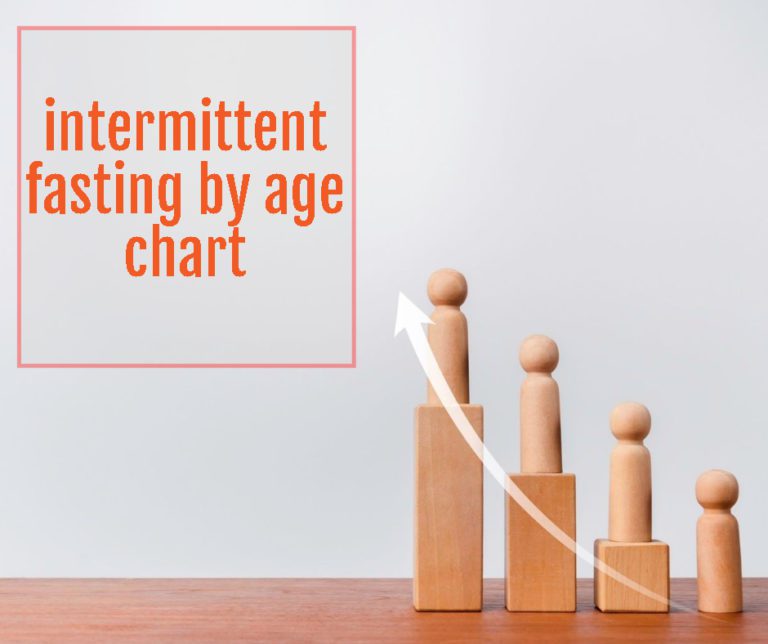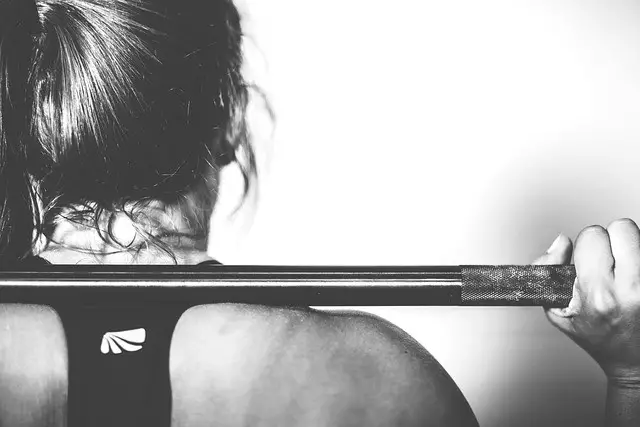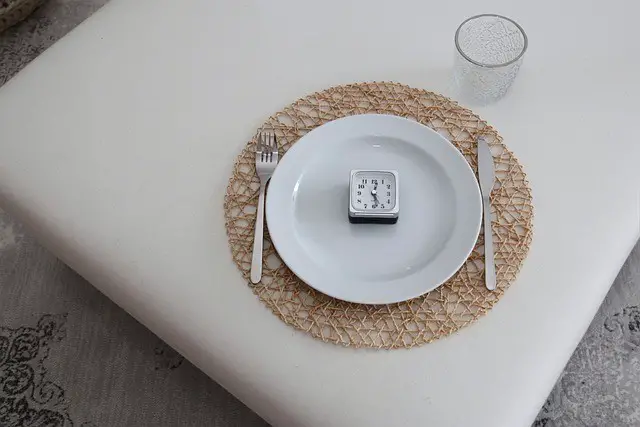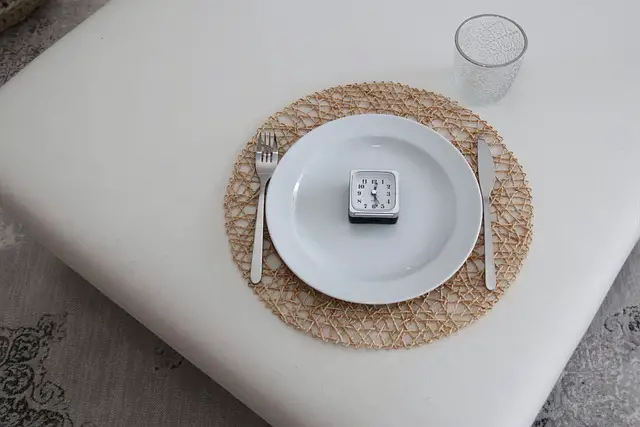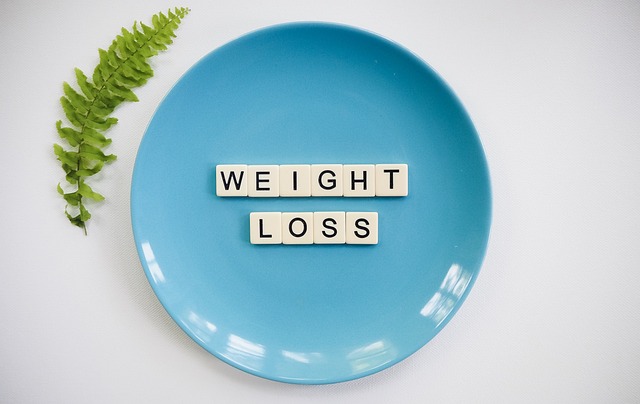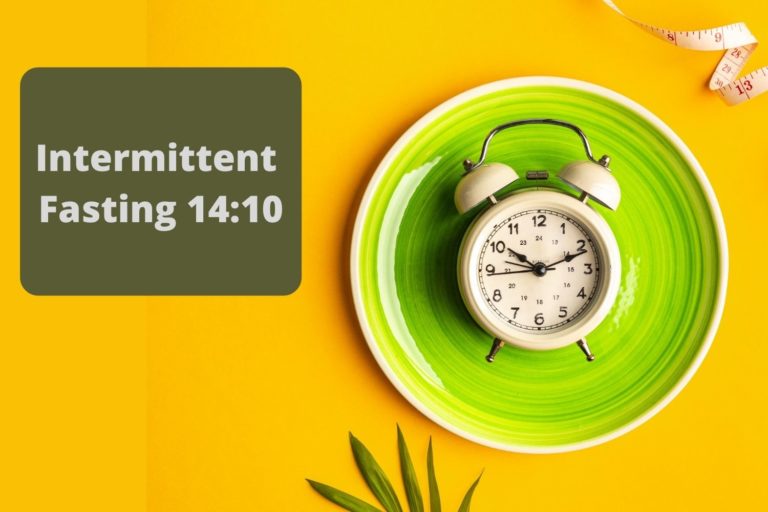Fasting can cause some nutrient deficiencies which make supplementing necessary. Working out on the keto diet can create a nutrient deficit that will need you to get them from different sources other than your diet.
Supplements you can take when fasting on keto include exogenous ketones, protein powders, and most importantly electrolyte supplements. In today’s article, we will be talking about electrolyte supplementation. Why should you supplement essential electrolytes for fasting? By the end of this read, you will know how to get electrolytes while fasting.
What are Electrolytes?
Before handling electrolyte deficiency, you need to know what electrolytes are. In terms of nutrition, these are essential minerals found in sweat, blood, and urine. When you dissolve these minerals in the water, they form positive or negative ions that transfer electric charges used in metabolic processes. Simply put, they are electrically charged minerals.
The major electrolytes found in your body include:
- Magnesium
- Phosphorus
- Sodium
- Phosphate
- Bicarbonate
- Calcium
- Chloride
You need to achieve electrolyte balance for proper nerve and muscle function, maintain fluid balance, and for pH maintenance.
What are the Roles of Electrolytes?
Electrolytes play a significant role in regulating your heartbeat, with muscle contraction, improving immune system function, and helping your brain cells to communicate. The following are the main electrolytes that are most likely affected by fasting and their functions include:
Sodium
It combines with chloride to form sodium chloride which:
- Maintains blood pressure
- Maintains fluid balance
- Transmits nerve signals
- Helps with muscle movement
- Helps with the absorption and transportation of nutrients
- Hydration
You can get sodium from your diet. The American Dietary Guidelines recommend limiting your sodium intake to 2300 mg per day. Too much sodium chloride has been associated with higher risks of hypertension and heart disease.
Potassium
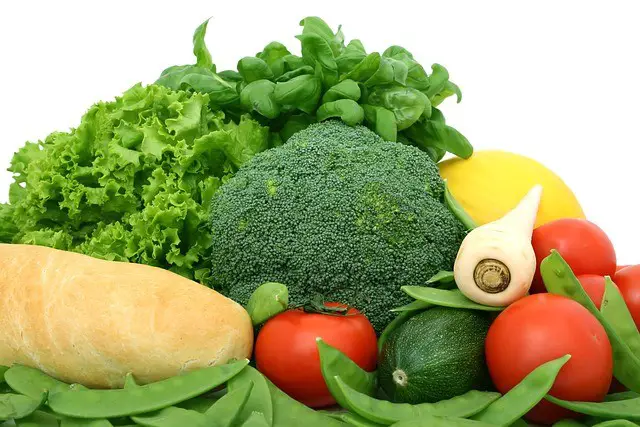
This mineral works together with sodium for fluid retention and blood pressure regulation. Fruits and vegetables are potassium-rich foods. The roles of potassium are:
- Regulate the balance of fluids.
- Helps relay messages in the nervous system generating nerve impulses, that regulates the heartbeat, reflexes, and other body functions.
- It also helps regulate heart and muscle contraction.
- Can help prevent hypertension.
The recommended dietary allowance (RDA) for potassium is at least 3,500 mg per day through your diet.
Magnesium
Green leafy vegetables are a good source of magnesium. Magnesium helps support muscle function, bone health, and mood.
The recommended daily value for adults for magnesium is 400-420 mg for males and 310-320 mg for women.
What Causes Electrolyte Deficiency in Intermittent Fasting?
Many things can make you lose electrolytes like vomiting, diarrhea, sweating, low-carb diets, and fasting. Dehydration and some illnesses like kidney disease, disordered eating, and severe injuries like burns can lower electrolyte levels.
While intermittent fasting, you restrict calorie intake which may reduce consumption of some foods that provide you with essential electrolytes. The Keto diet is a fasting-mimicking diet that can affect electrolyte levels.
How Does Fasting Cause Electrolyte Imbalances
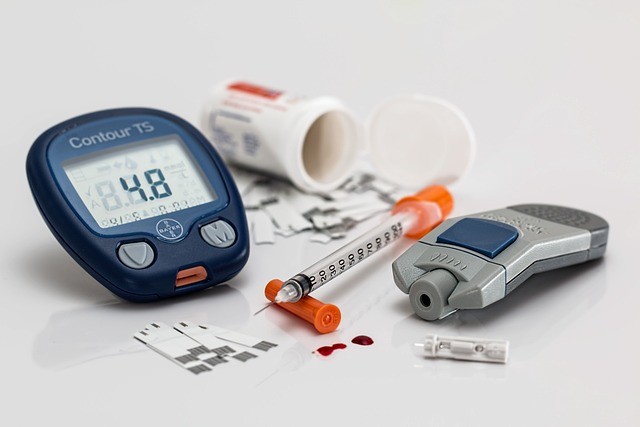
Fasting and the keto diet trigger the same metabolic responses in the body. A fasting period or eating keto minimizes carbohydrate intake, which reduces blood sugar, lowering insulin levels. Insulin is your body’s energy storage hormone, communicating to the body to release glucose into your cells.
Insulin also speaks to your kidneys for balanced electrolytes. Insulin tells your kidneys to hold on to electrolytes and to reduce their excretion in urine. This is why individuals struggling with hyperglycemia have issues with water retention.
When insulin levels are low like in keto and intermittent fasting, electrolyte deficiencies are common because your body is excreting a lot of sodium in urine. Intermittent fasting and low-carb diets are great for regulating body composition, but pathetic for electrolyte balance.
Other ways intermittent fasting can cause electrolyte depletion include:
- Poor dieting: Intermittent fasting can only be beneficial if you’re doing it right. You need to ensure that your meal plan on a fasting period provides you with enough macros and micronutrients to prevent deficiencies and electrolyte imbalance.
- Sweating during exercise: Working out on intermittent fasting is great for fat burning, muscle building, and weight loss. High-intensity exercise causes a lot of sweating which can make you lose electrolytes.
- Prolonged fasting period: Fasting frequently for many days can lower your electrolyte levels since you will not be getting enough food to raise your insulin for electrolyte retention.
Symptoms of Severe Electrolyte Imbalance
Mild electrolyte imbalance may not have any symptoms. However, severe electrolyte deficiency can be shown by the following symptoms:
- Irregular heartbeats
- Fatigue
- Headaches and migraines
- Convulsions
- Muscle cramps and weakness
- Confusion
- Numbness and tingling
If you’re fasting and you experience any of the above symptoms, visit your healthcare provider to have blood tests done. The electrolyte blood test is referred to as the Electrolyte Panel Blood test.
How to Get Electrolytes While Fasting
It is important to replenish electrolytes when intermittent fasting to prevent electrolyte deficiency. Low electrolyte levels can cause muscle cramps and weakness which will affect your exercise performance when working out on intermittent fasting or exercising on the keto diet.
This is how to get electrolytes while fasting:
Consuming Electrolyte Rich Foods
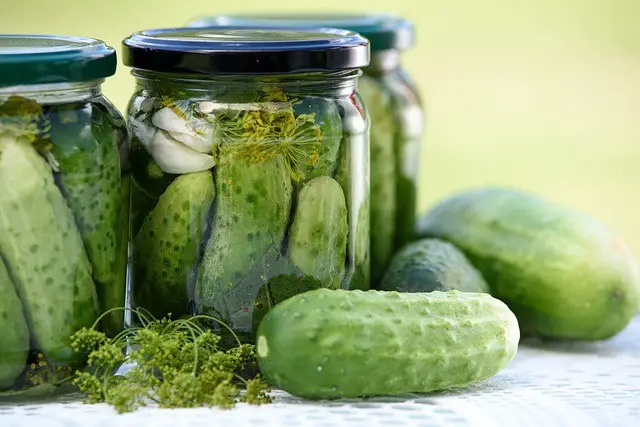
Your body can produce some vital minerals like bicarbonates, but you the rest, you will have to get from your diet.
The main sources of electrolytes are vegetables and fruits. Other foods like nuts, seeds, dairy products, and salty foods like pickles and cheeses are also good electrolytes for fasting.
There are foods you can include in your water fast that will not break your fast but will ensure optimum electrolyte levels.
How to Get Electrolytes While Water Fasting
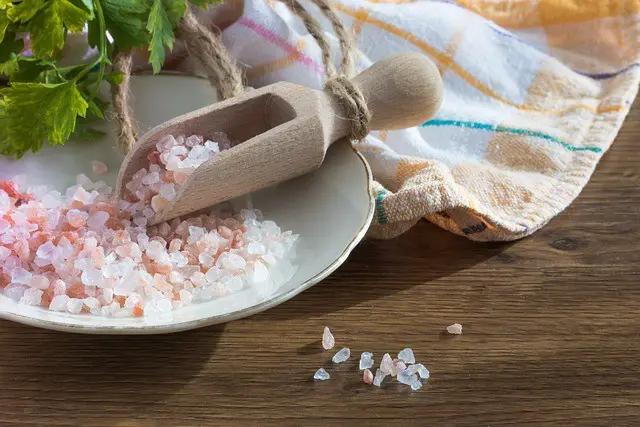
Here’s how to get electrolytes while fasting without raising calorie intake:
Water fast electrolytes
This is an electrolyte solution of pure water and small amounts of Himalayan pink salt. Add some lemon juice for flavor. In place of water, you can make your solution by adding a pinch of sea salt to dilute lime juice. This way you will be getting vitamins and electrolytes for fasting reducing muscle cramping caused by their deficiency.
Broths
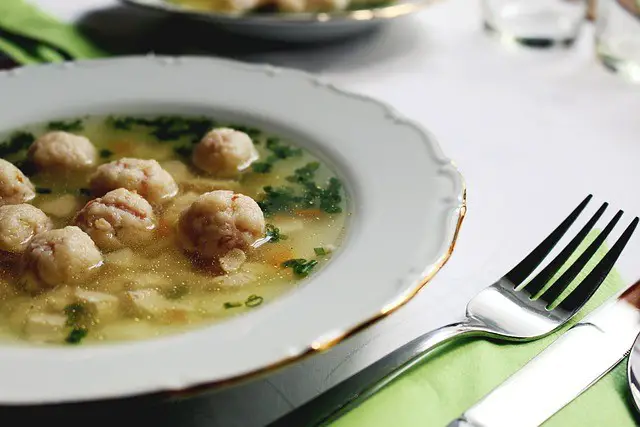
There are health benefits to consuming vegetables and animal proteins like lean meats and chicken. But when water fasting, consuming these foods can break your fast. Have you tried bone broth or vegetable broth? Bone broth is a good source of electrolytes for fasting that is low in calories and carbs, keeping you in ketosis.
Vegetarians can opt for vegetable broth that is unsalted to boost electrolyte intake.
Electrolyte Drink
Another way to maintain proper electrolyte balance is by taking electrolyte drinks. An electrolyte drink will not only provide you with vital electrolytes for body functioning but will also keep you hydrated.
Go for keto electrolyte drinks that are low in added sugar which will not kick you out of ketosis. Sports drinks usually have too much sugar, although they can provide you with all the electrolytes you need when fasting.
Sugar electrolyte drinks will increase glycogen stores, increasing glucose available for energy. A sugar electrolyte drink is not appropriate for a low-carb diet since you won’t achieve ketosis on them.
For drinks, the best electrolytes for fasting are those that:
- Contain a combination of many key electrolytes like potassium, calcium, magnesium, and sodium.
- Are zero sugar. Avoid electrolyte drinks with artificial sugar when refueling after a workout. Go for those with low-carb sweeteners like monk fruits and Stevia for optimal hydration.
- Don’t contain artificial colors.
- Are convenient.
There are different types of drinks in the market including:
Electrolyte Tablets
For those looking to make an in-the spur-of-the-moment electrolyte drink, salt tablets or salt pills are a great choice for you. Salt tablets help replenish low sodium levels. Long-distance or marathon runners take salt pills before or after runs to avoid muscle cramps.
One study done to evaluate the effectiveness of salt tablets in the treatment of euvolemic hyponatremia showed they increased serum sodium levels in patients suffering from hyponatremia.
Take your dissolvable salt tablet and pop it into your water bottle, and voila! The most popular one is Electrolytes Reviver salt pills. Reviver salt pills improve electrolyte absorption by 30% more than sports drinks. They do not contain artificial sweeteners, colorings, or additives.
Electrolyte Powder
An electrolyte-rich powder is designed to suit special diets like keto. It is the powdered form of a liquid electrolyte drink. In terms of electrolyte powder, the best electrolytes for fasting should be:
- Unflavoured electrolyte powder
- It should be a key nutrient electrolytes powder, that should contain all essential minerals like sodium, magnesium, potassium, calcium, and chloride.
- Should contain electrolytes in the most bioavailable form. For example, magnesium is more readily available as citrate, lactate, aspartate, and chloride than sulfate or oxide.
- Powder packets should be affordable. A high-quality electrolyte powder costs $0.35-$0.6 per serving.
- Easily soluble. The electrolyte powder should dissolve easily in fluids like water to form a uniform liquid.
- Avoid an electrolyte supplement powder with additives and fillers like cornstarch, maltodextrin, and sugar. These ingredients have been associated with inflammations making them unnecessary in electrolyte replacement.
An electrolyte powder can come as a whole tin while others as powder packets. Which key nutrients electrolytes powder can you use on a low-carb diet:
Dr. Berg’s Electrolyte Powder
This electrolyte powder is designed to provide nutrients that people lack. High carb diet, inadequate consumption of potassium-rich foods, and increased intake of processed foods can deplete your magnesium and potassium levels.
Dr. Berg’s electrolyte powder provides the body with potassium and magnesium for enzymes to generate energy in the mitochondria. This electrolyte powder will provide you with an energy boost for your exercise.
Keppi keto electrolytes powder
The Keppi keto electrolytes powder is designed for the keto diet, for ketosis-induced dehydration. It is zero sugar and contains no carbs. It dissolves easily and does not form any clumps. It is also made from keto-friendly fruits, that as raspberries and lemon.
Hydration multiplier powder packets
For a vitamin gold mine, the hydration multiplier powder packets are rich in vitamins C, B3, B5, B6, and B12. It is also gluten-free, dairy-free, and soy-free making it an anti-allergy electrolyte supplement powder.
The powder packets are traveling size making them convenient to enjoy on the go!
Fasting salts electrolyte powder
Anyone on the intermittent fasting journey can opt for this pure unflavoured electrolyte powder. This powder contains no added sweeteners or flavors making it perfect for fasting on keto.
Smartfast natural electrolyte powder
The Smartfast natural electrolyte powder is designed for elevated electrolyte levels that people experience when keto dieting. It contains 100% minerals, has no sweeteners or additives, and contains minerals in the most bioavailable form.
Powder packets are one of the most convenient sources of fasting electrolytes.
Electrolyte Supplements
On a balanced diet during your eating window, you may be able to get all the electrolytes you need. But those working out when fasting may lose a lot of electrolytes through sweat. Exercising on keto can also lead to the loss of large quantities of electrolytes. Another way how to get electrolytes while fasting is to include electrolyte supplements in your diet to meet your electrolyte needs.
Some good electrolyte supplements include:
Slimfast intermittent fasting electrolytes
The Slimfast intermittent fasting electrolytes is a hydration drink designed to hydrate and provide you with nutrients needed during a fast.
This electrolyte supplement contains casein protein which makes it a good snack for electrolyte support. One serving contains 6 g of fiber, 15 g of protein, and no added sugar.
Supplement keto chow electrolytes
This electrolyte supplement contains a blend of sodium, magnesium, and potassium. They are electrolyte hydration drops that you can add to your favorite beverages to enjoy electrolyte benefits. This supplement is customizable to meet specific needs.
Elm & Rye electrolyte gummies
This supplement provides you with 5 essential vitamins including vitamins B6, B12, and C, potassium, and pantothenic acid. These electrolytes are good after exercise and fasting.
Supplementing electrolytes for fasting is important to wade off the keto flu. Add electrolytes to your diet to ensure you stay within your electrolyte needs.
Do Electrolytes Break A Fast?
Electrolytes are minerals, so they will not break your fast. Whether it is an electrolyte solution, bone broth, or supplements, they will not break your fast. Electrolytes contain no calories, and the keto varieties are low carb which will keep you in ketosis. The sugar-free varieties are the best electrolytes for fasting.
Do All Types of Fasting Require Electrolyte Support?
Intermittent fasts that last for longer periods, over 48 hours, require electrolyte support. This is because the glucose levels are too low meaning insulin levels are reduced, and there’s little communication to your kidneys to retain electrolytes.
Short periods of fasting, from 12 to 24 hours, do not necessarily need electrolyte supplementation since there are still glycogen stores that can be converted to glucose. Pay attention to your body and start supplementing electrolytes while fasting when you notice symptoms of deficiency.
How Many Electrolytes Do I Need During Fasting?
You need to supplement electrolytes only when you are not getting enough from your diet. Excess consumption of electrolytes can lead to toxicity. How much electrolytes you consume depends on:
- Body composition
- Fasting period
- Exercise
- Diet
- Medical condition/ medications
Stay within the recommended daily values of electrolytes to be getting enough electrolytes while fasting.
Bottom Line
Electrolyte supplementation while fasting is important to ensure you meet your electrolyte requirements. Electrolyte deficiencies can cause the keto flu and reduce exercise performance of your workout while fasting. There are a variety of supplements to help increase your electrolyte intake that meet your convenience. Speak to your doctor anytime you experience symptoms of electrolyte deficiency.
Are you on any type of electrolyte supplements while fasting? Did you know how to get electrolytes while fasting before reading this article? Drop any other electrolyte drinks, powders, or supplements you use that are keto-friendly in the comment section.
